CFA Ethics: A Case Study on Investment Advice and Pension Liabilities
VerifiedAdded on 2023/06/15
|5
|940
|441
Case Study
AI Summary
This case study examines the ethical challenges faced by Harry Markham, a CFA charterholder working for Investment Consulting Associates (ICA), concerning the valuation of public sector pension fund liabilities. Markham discovers that the actual liabilities, when calculated using standard valuation and financial analysis principles, are significantly higher than those reported by the Government Accounting Standards Board (GASB). He is conflicted because his firm and clients are uninterested in addressing these discrepancies, while his professional duty as a CFA requires him to provide sound and ethical investment advice. The study presents two alternative courses of action: providing advice that aligns with the client's desires, thereby ignoring the identified liabilities, or offering advice based on the accurate but unfavorable assessment, adhering to the CFA Code of Ethics and Standards of Professional Conduct. The study concludes that Markham should choose the latter to uphold ethical principles and act in the public interest, even if it risks conflict with his firm and clients. The document is available on Desklib, a platform offering AI-based study tools and a wide range of academic resources for students.
1 out of 5
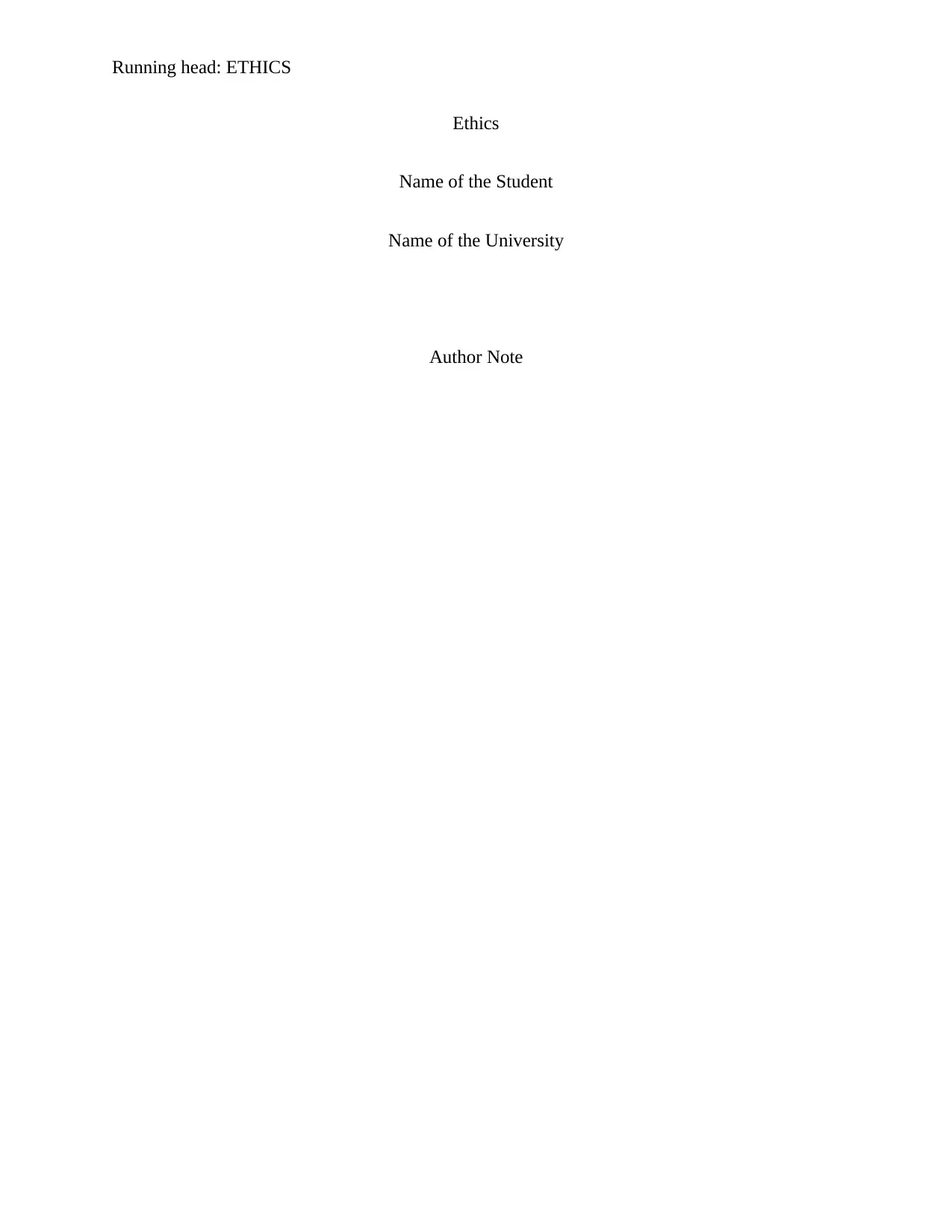
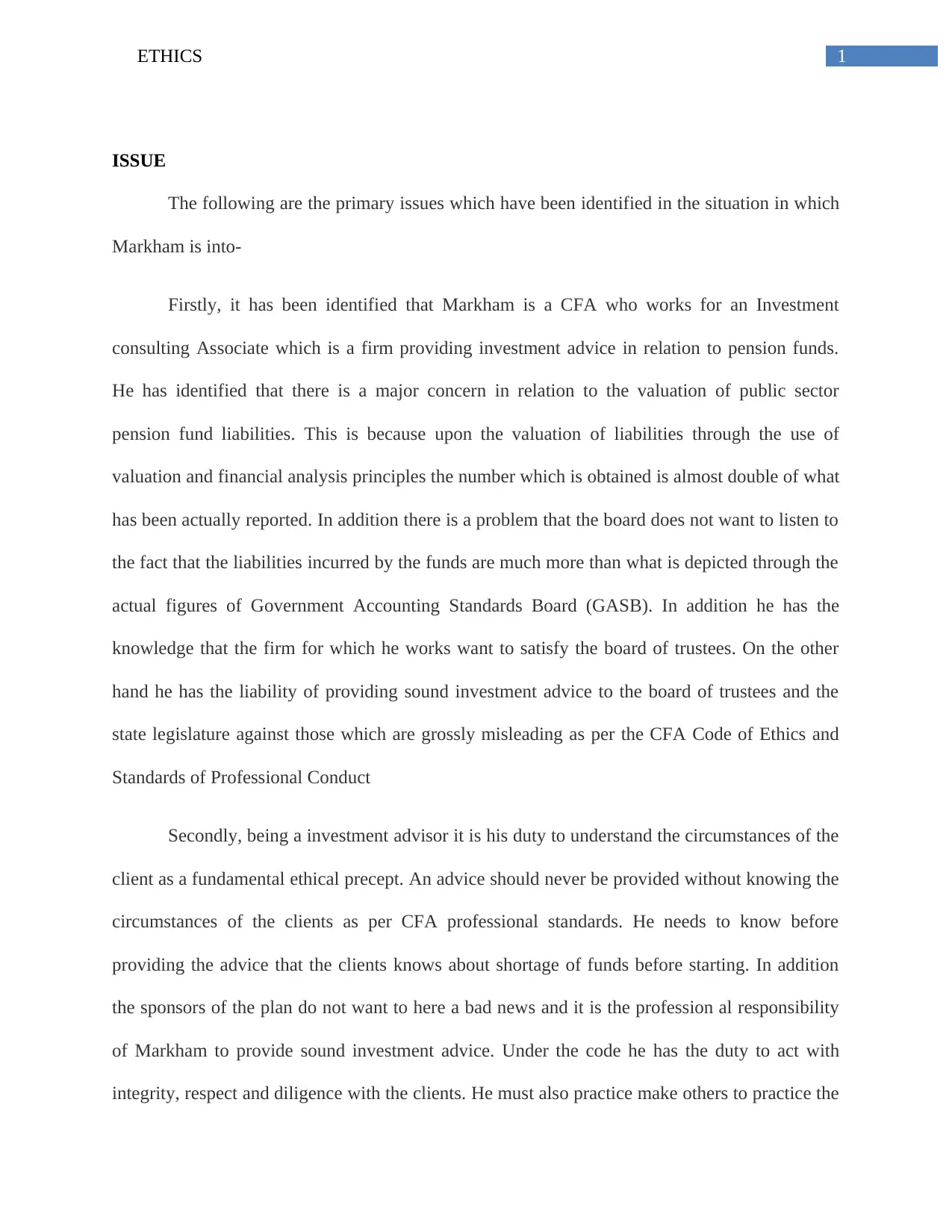
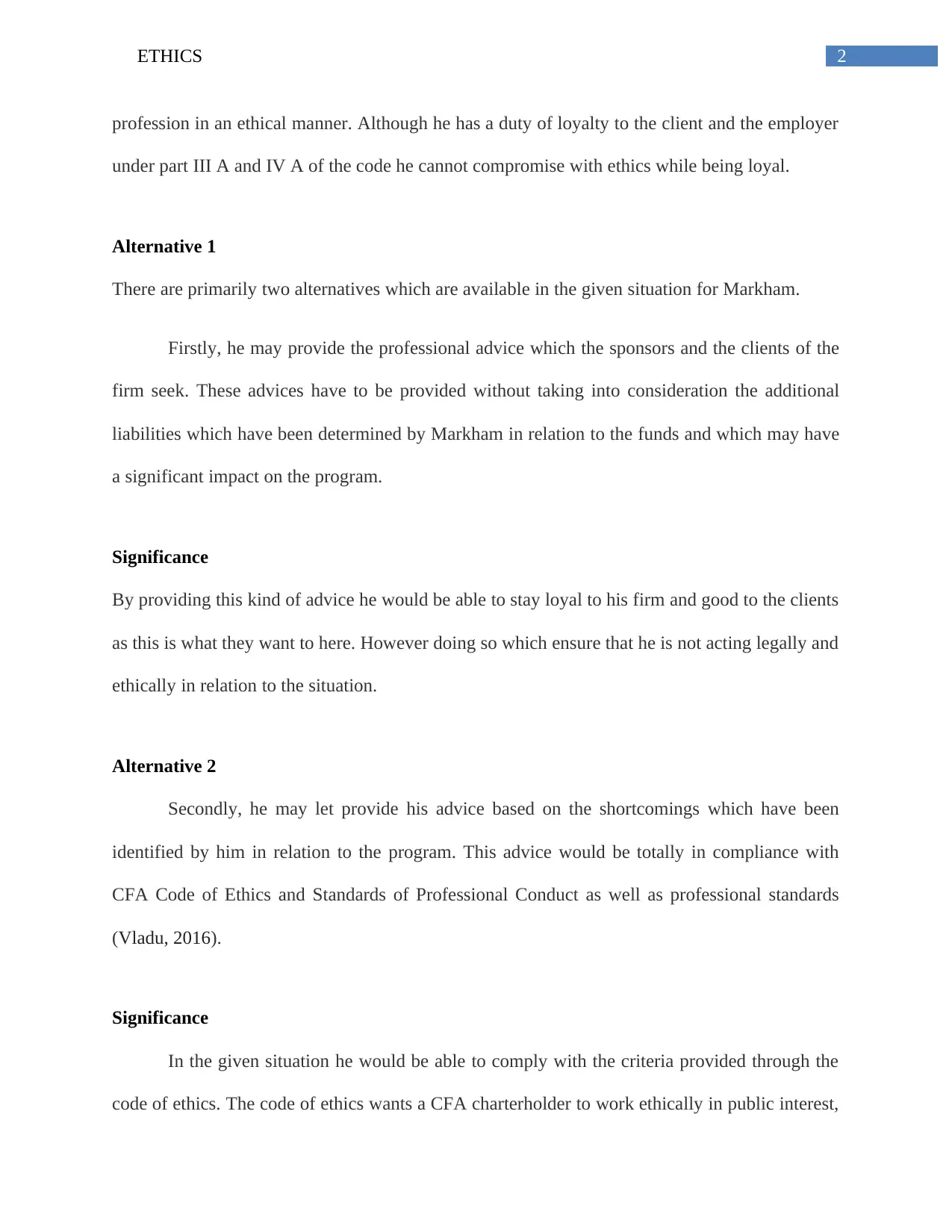

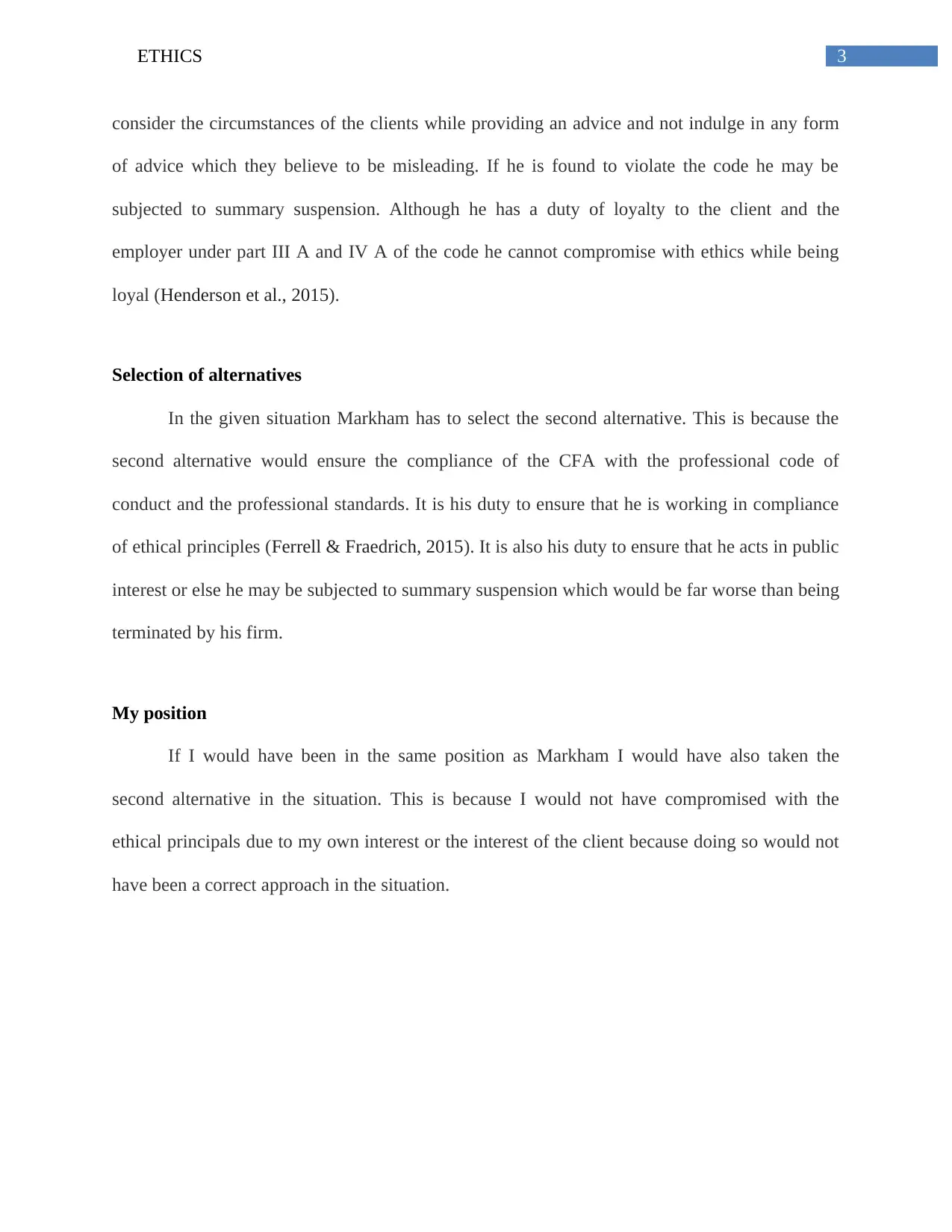
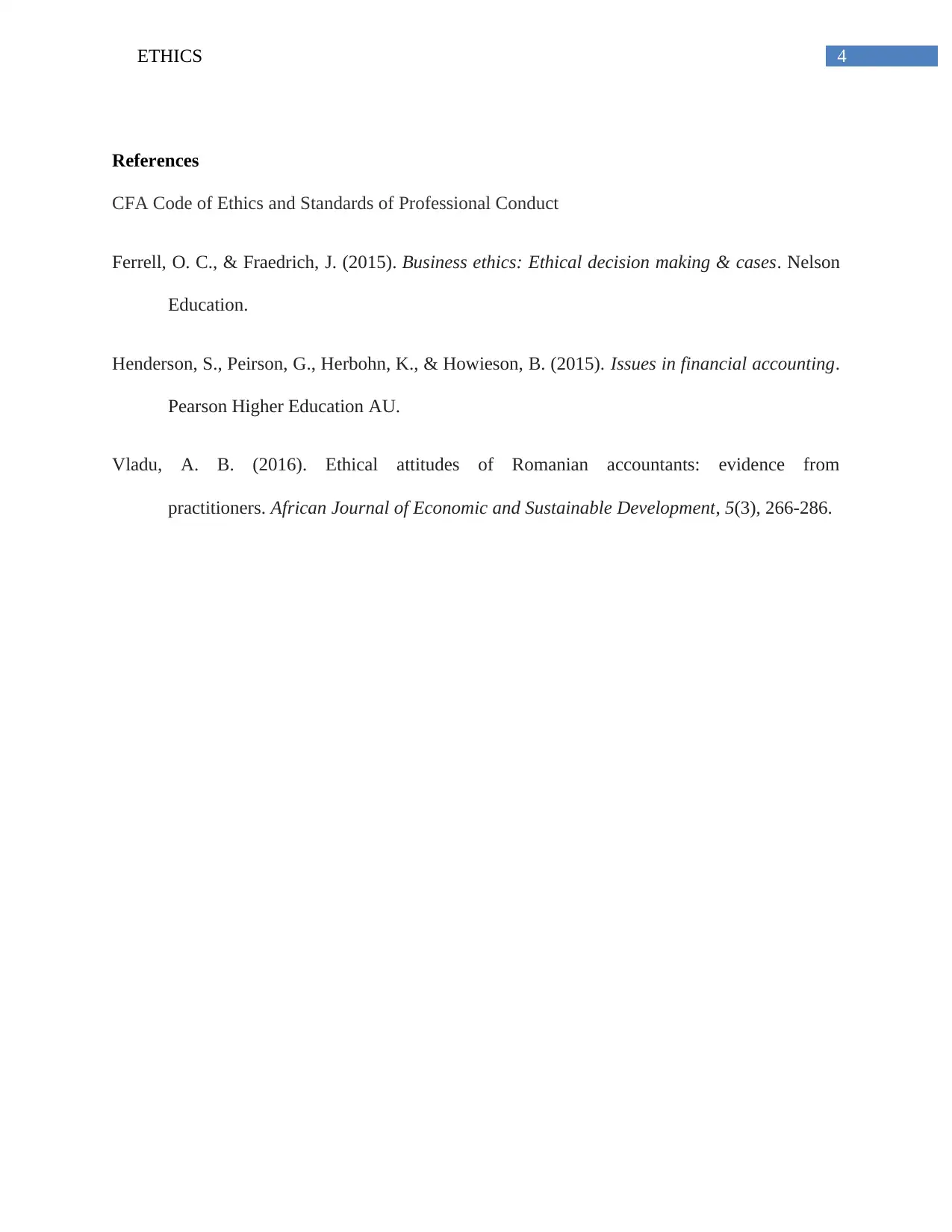






![[object Object]](/_next/static/media/star-bottom.7253800d.svg)